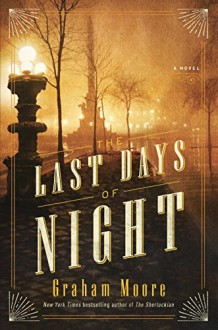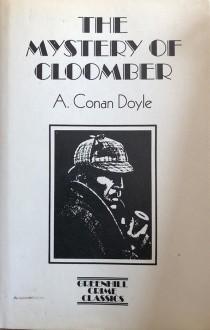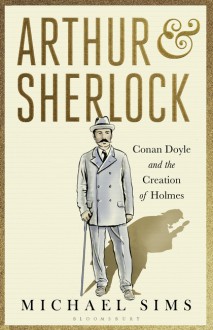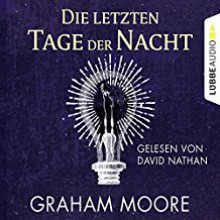
The Last Days of Night, Graham Moore, author, Johnathan McClain, narrator
George Westinghouse and Thomas Edison are both geniuses and rivals with egos that are huge. Both are driven to succeed. Both are inventors extraordinaire and both are engaged in a lawsuit with each other, suing and counter suing. Edison demands that Westinghouse stop making light bulbs because he has the patent to prove he invented them and owns all rights to them in any form. The law is on his side stating that he alone can produce them. Westinghouse is suing Edison to allow his company to produce light bulbs also. Westinghouse believes he has invented a better light bulb.
Paul Cravath is a young lawyer in his mid twenties. He was lucky to land a job with a law firm and then to be hired by George Westinghouse to represent him in his fight against Edison General Electric, even though he is inexperienced and without major contacts. They were the actual qualities that appealed to Westinghouse.
Nikola Tesla is a brilliant, if not disturbed, scientist and inventor. He sees the world through the pictures he fantasizes and imagines in his head and then attempts to create them in the real world. His mind is amazing, but his personality leaves a bit to be desired since he seems to be obsessive and often disengaged from the world everyone else is witnessing. Tesla invented alternating current which is eventually used by Westinghouse. Although it is safer, in an effort to prevent its use, Edison portrays it as a tool of death and uses it for an electric chair.
Agnes Huntington is a talented and beautiful young woman in her mid twenties who is an ingénue who sings at the Metropolitan Opera House. She is sought after by men of influence, money and power and she uses her influence with them. Paul Cravath is completely smitten by this vixen who lives in a world way above his station in life. He does not know her secrets. Paul comes from a humble family. His father is a man of the cloth who has founded Fisk, a school for uneducated, freed slaves. Although Slavery had ended, equal rights had not yet become a reality. It would take many more years.
The lawsuit between Edison General Electric and Westinghouse Electric threatens to bankrupt both men, but both are stubborn enough to throw caution to the wind. Neither will say uncle. As the author weaves this tale of historic fiction, he shines a light on Cravath, Edison, Westinghouse, Tesla and Huntington, with an intensity that brings them to life on the page. Little known facts are revealed about their interactions as General Electric is born.
Their tactics, often underhanded, and their cohorts, often dishonest, though powerful, work together to create a novel that has all the makings of a great movie as well as an incredibly readable book. The fact that a there is a romantic undercurrent enhances and enchants rather than cheapens the story. When the book comes to a close, the reader feels almost as if they had met all the major characters in real life, although it is more than 120 years in the past. The fact that each character is willing to compromise their soul to gain power and success is illustrated as the story unfolds. In some ways, their behavior is admirable even as it is sometimes also reprehensible.
The friendship that develops between Paul Cravath and Nikola Tesla is intricately drawn as Tesla’s personality and genius are developed from his own writings and possibly the expression of a kind of mental illness that he suffers from which causes him to behave in an odd manner, most of the time. Throw Agnes Huntington into the mix and the story blossoms not only as a court case and study of business, brilliance and madness, but also as a beautiful romance. Agnes is talented, beautiful and intelligent. Paul becomes quite smitten with her even though she may be already promised to another, even though their different backgrounds and class are antagonistic to each other.
In his fictional presentation, Moore has accurately described the skullduggery that exists in the corporate and financial worlds, probably not only then, in the late 19th century, but even today, in the 21st century. Money talks and its power is enormously influential regarding deal making and relationships.
In addition to the creativity of the author in crafting such a masterful novel, there is an incredibly talented narrator. Perhaps coming from the entertainment business industry, Moore was particularly able to choose someone from his own industry that read the story magically, always with the perfect accent necessary and the emotional presentation that was never over the top, never stole the show, but always perfectly enhanced every scene.


 Log in with Facebook
Log in with Facebook 
















